The Other Georgia, Part I – Tbilisi
February 29, 2016
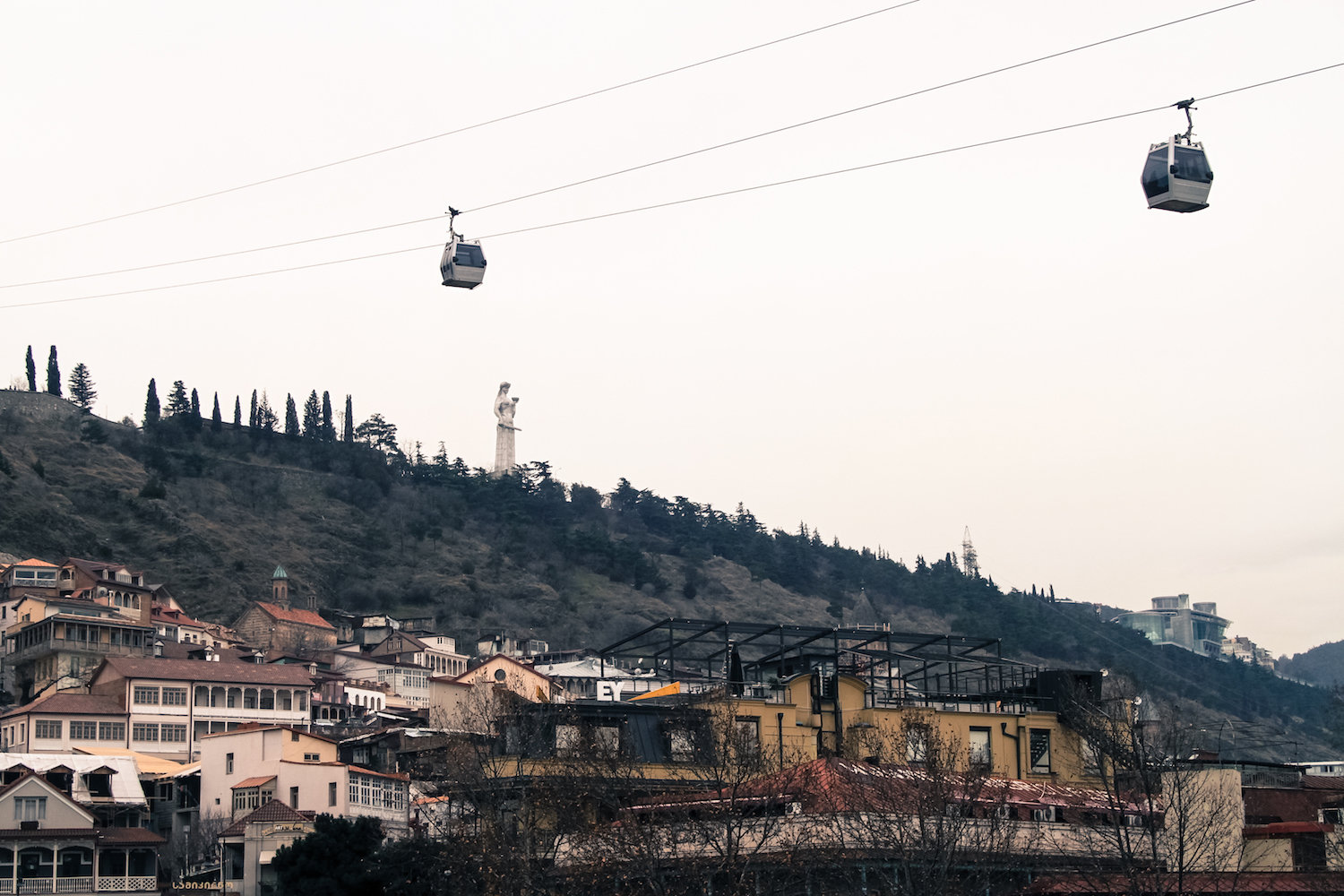
Tbilisi is a city of crumble and construction. The gondola sways up over the river, over close, claustrophobic streets seeming to fold in on themselves. Here, dented tin and red-tiled roofs cover haphazard buildings slouching into gray courtyards. There, a stunning twist of ultramodern architecture sits wrapped in glass. Bruised and dented cars give guttural chugs around tight corners, slipping past pedestrians who hug the sides of buildings where there is no sidewalk.
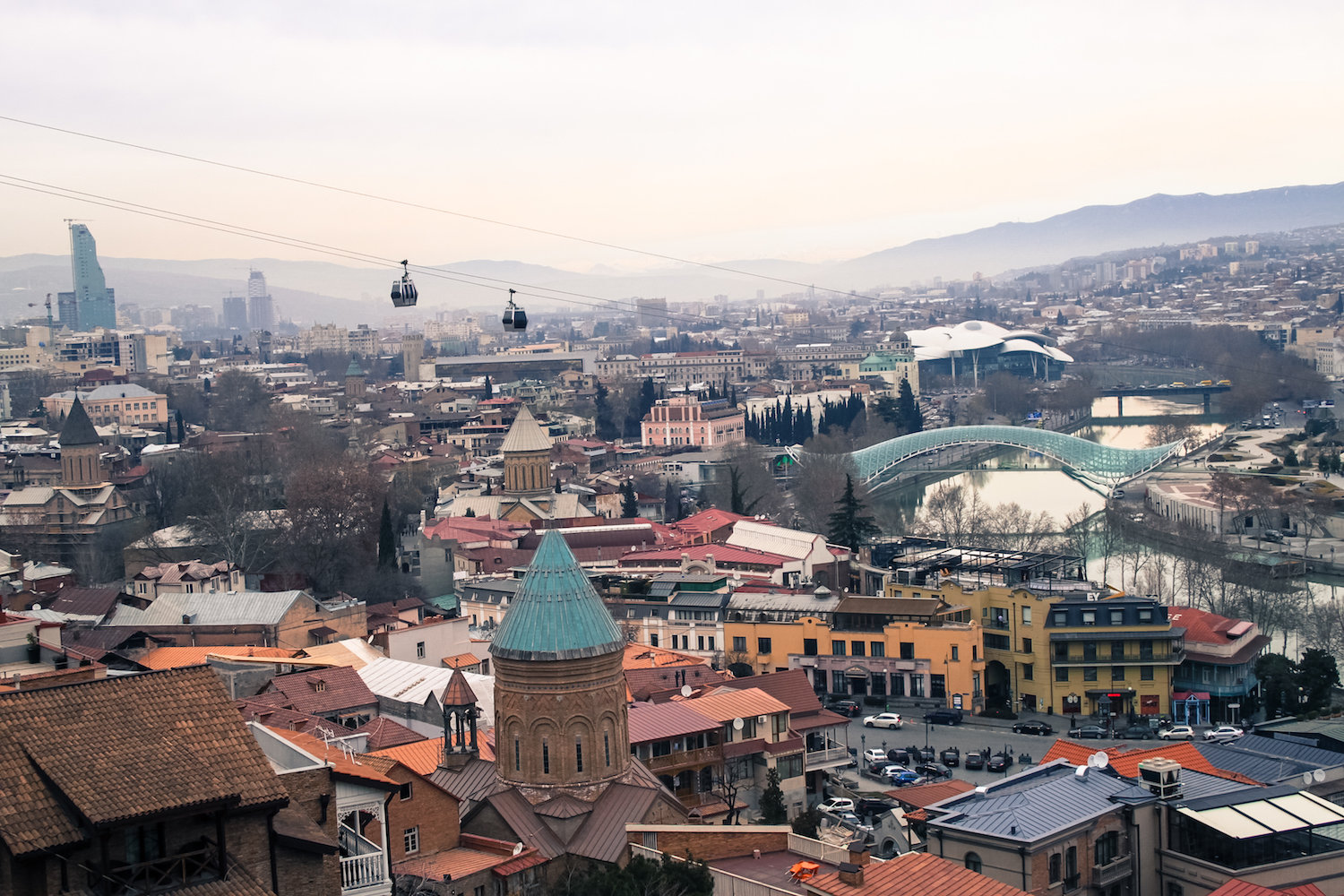
From above, it seems convoluted, but calm. A sleepy city, settling with dust. On street level, there’s clamor, construction sites and bridge beggars, vendors hawking homemade sour plum sauce and dark purple churchkhela – walnuts strung together and dipped in thickened grape paste. There are wine shops on every corner and little grocery stores with bins of fresh herbs, potatoes, and fruit.
But David and I are hungry. We curl down the twisted streets from our Airbnb apartment to the river and find a restaurant with big glass windows overlooking the water. It’s simple inside – rows of wooden tables and big picture menus, a TV playing an advertising reel in the corner, a case displaying sweets. But all around us, people are tucking into big plates of food – dumplings and stews, warm bread and parsley-laden salads.
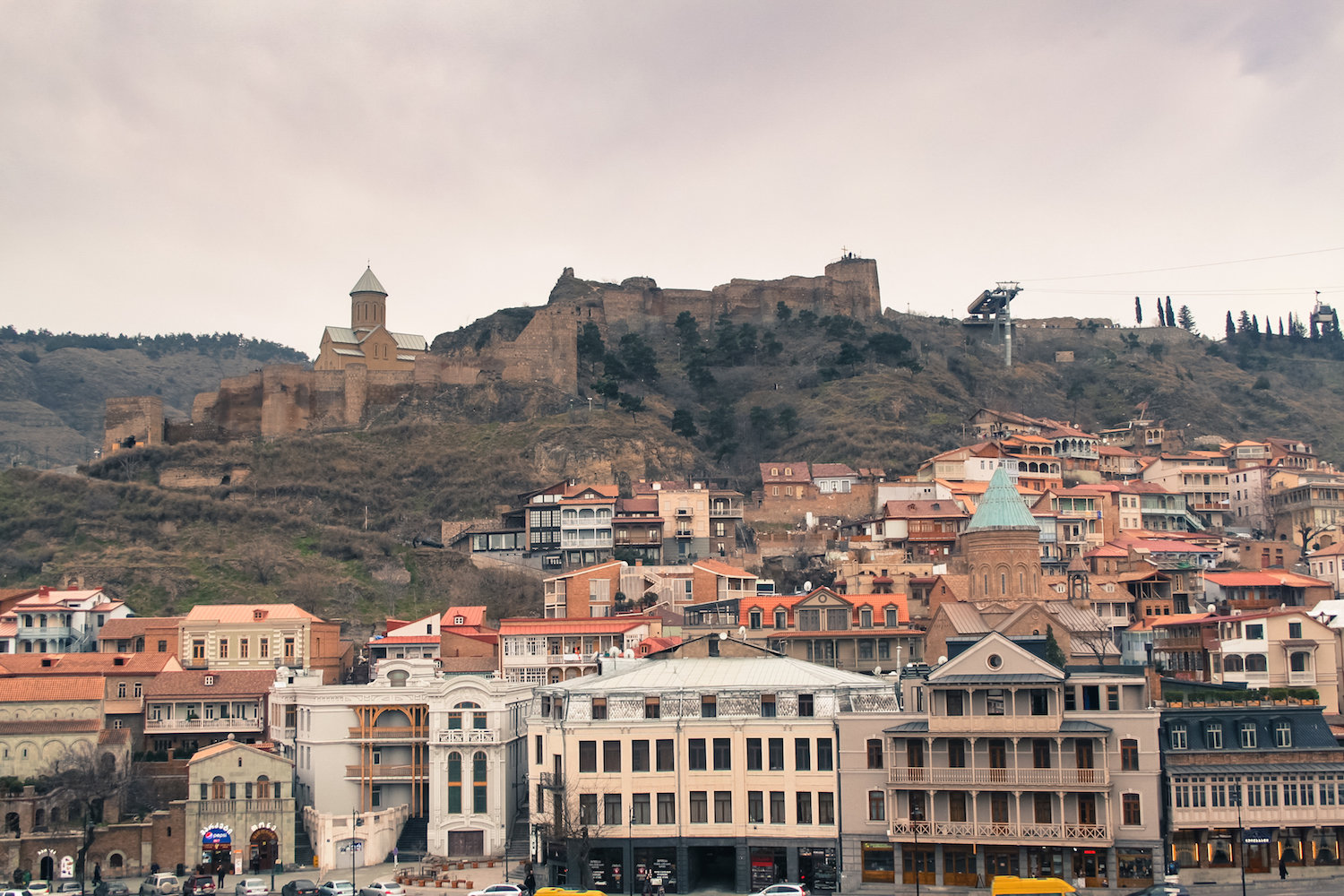


We order khachapuri – hot, chewy bread baked with rich, slightly sour cheese. It’s still bubbling when it arrives. David orders fire-grilled pork kebabs covered in slivers of sweet raw onion, and for me there’s a cold stew of eggplant, potato, pepper, tomato, and herbs.
Reinvigorated, we explore the city from the top down. Narikala Fortress is a well-kept ruin stretching along a low-lying ridge. Weather-worn stone steps turn into scraggly gravel and rock, which we climb to get a better view. To our left, Mother Georgia – silent and strong. To our right, the green river snaking between the cliffs it has carved.

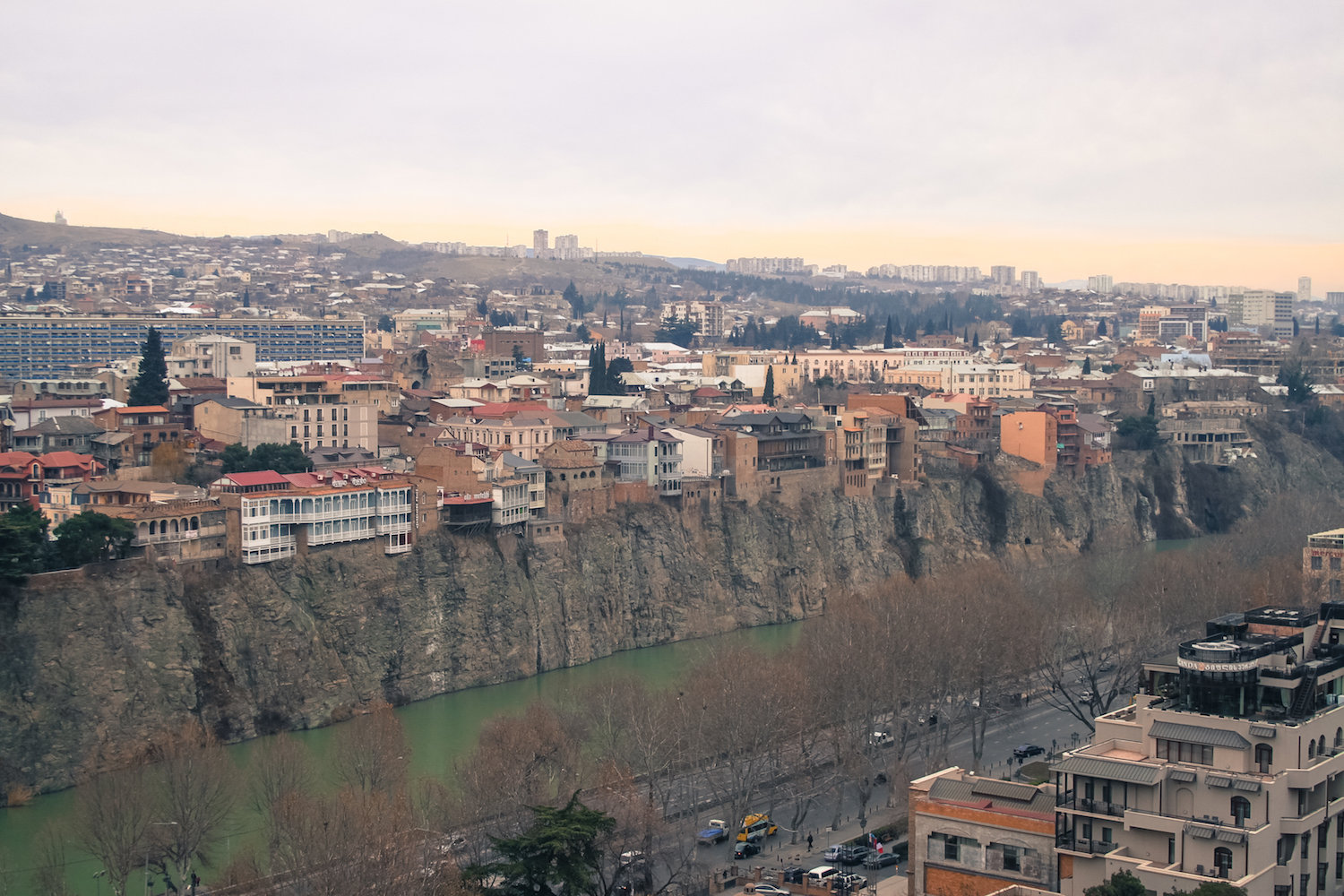
We’re looking for the Gabriadze marionette theater, but stumble instead upon a flower market where people are also peddling rows of used books. The fresh, hot smell of baking bread wafts up a set of knobby basement steps. We peek below. Two men handle the tone oven. One twists dough into the shape of a tricorne hat, the other slaps it on the heated stone walls of the oven. They use long wooden sticks to remove the baked bread, and when I tell them how wonderful it smells, they hand me one of the hot loaves and smile. The bread steams into the chilly February air as we rip into it and eat.
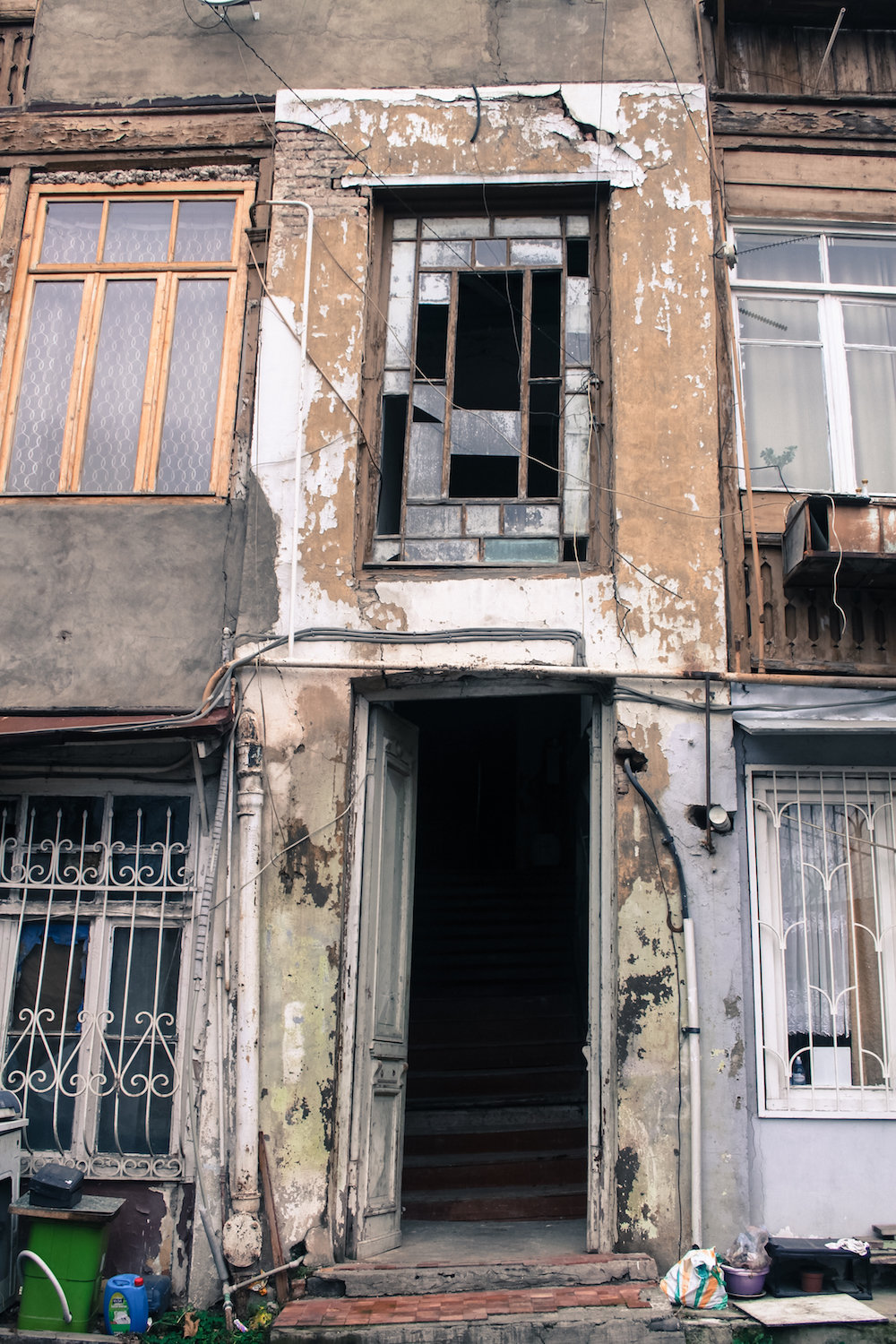
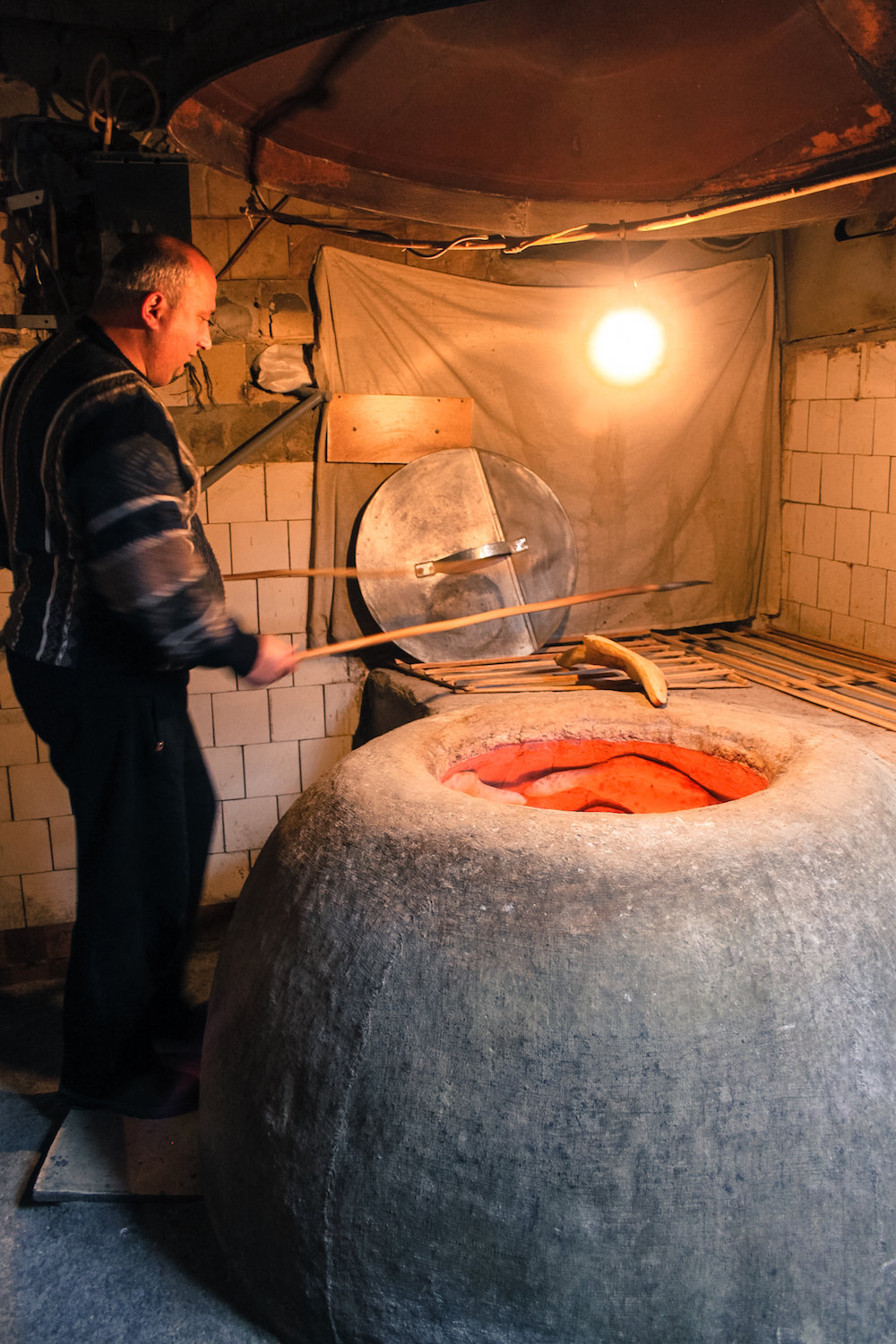
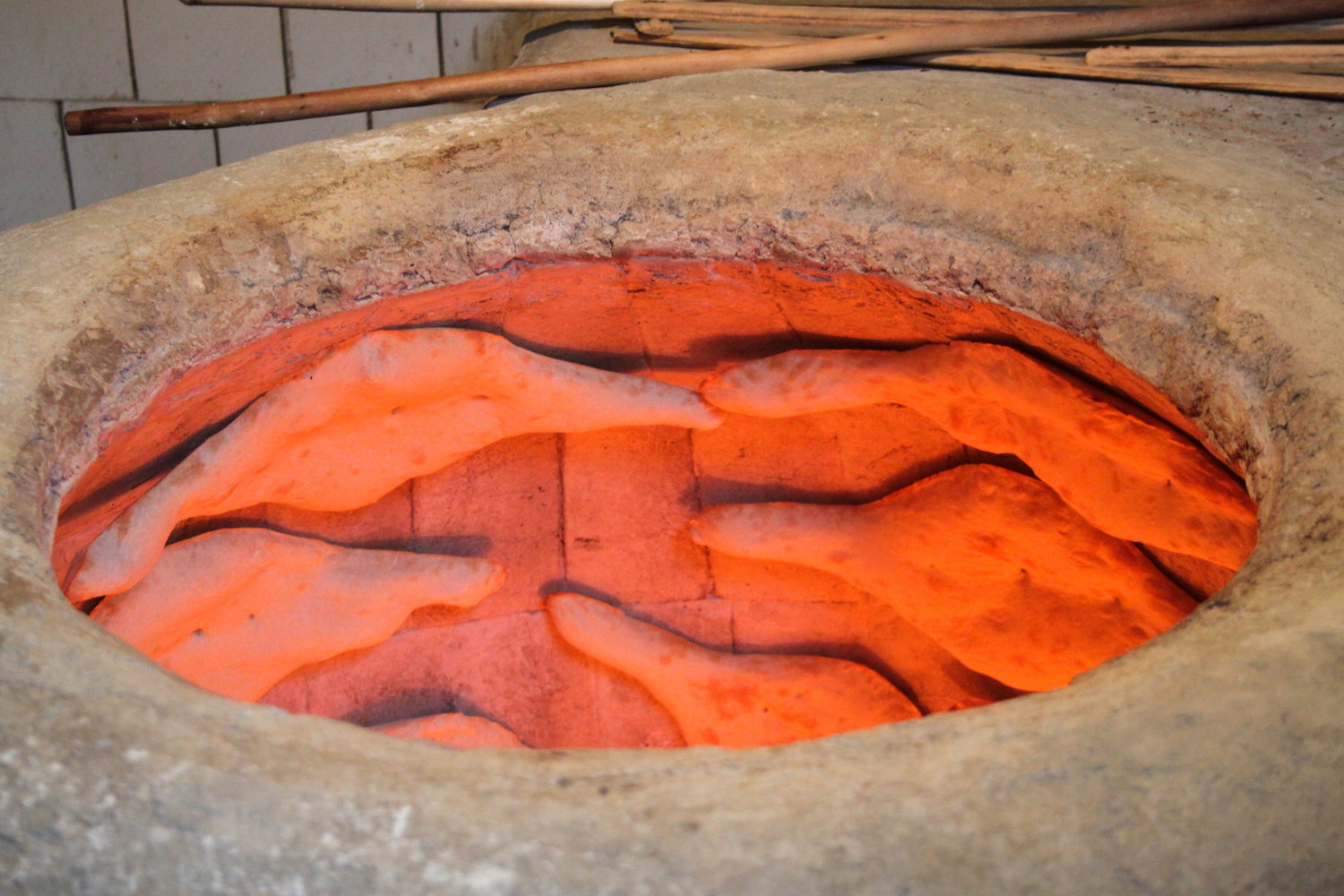
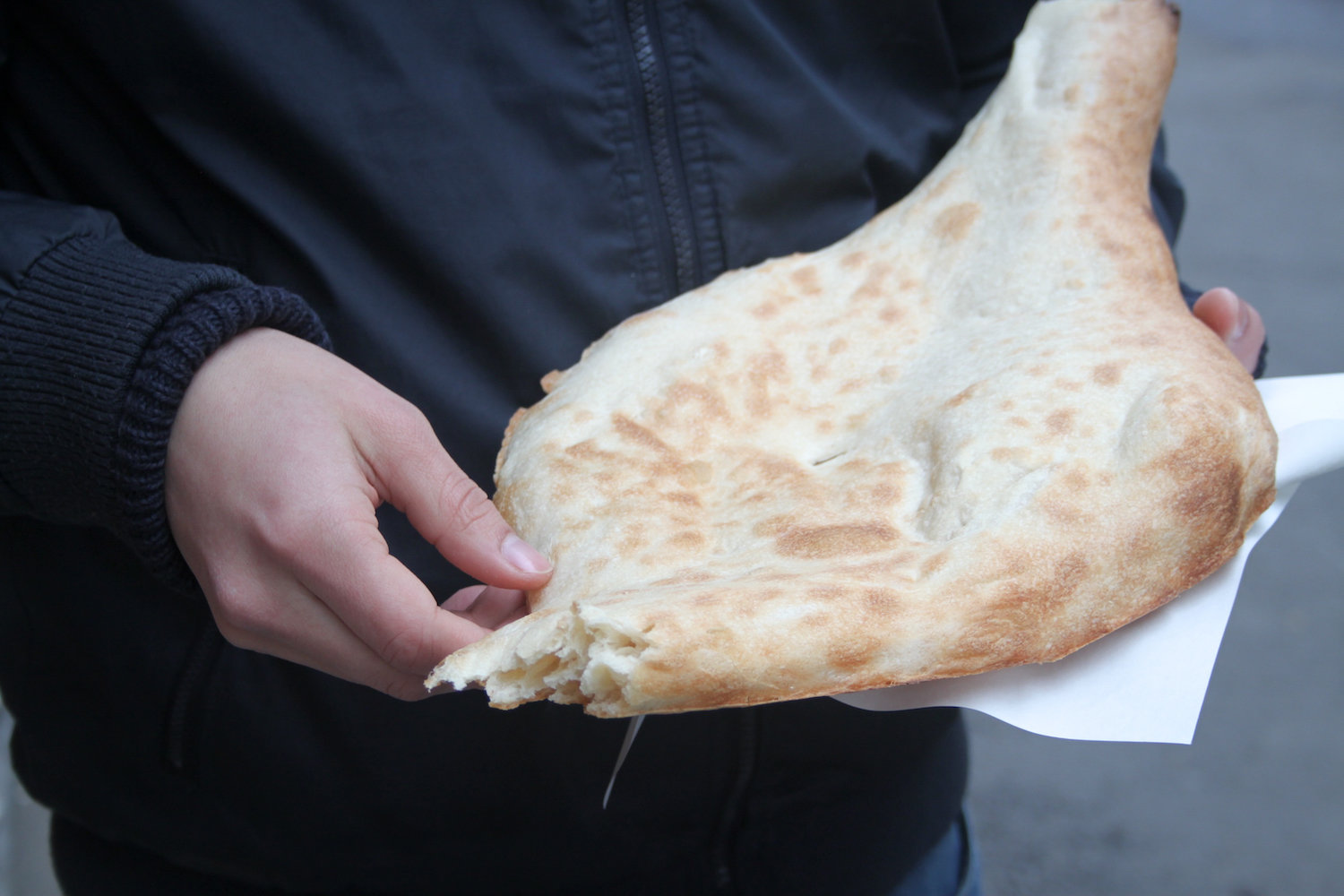
When we finally find the theater after hours of walking in circles, it’s closed for the season. But the theater café is open, and we rest our weary feet inside the cozy space, light shining softly through colored glass. We order lobiani – thin bread stuffed with red bean paste – and lemon cake, surprisingly nutty and dense.
On the way home, we stumble upon a small wine bar. The space is paneled in rustic blonde wood with bright cushions and wine bottles everywhere. We order a bottle of saperavi – a grape we later learn is quite possibly the first grape, whose seeds travelled westward from Georgia, the birthplace of wine. But we learn this from a multi-lingual wine merchant who also tells us Georgia is the world’s sixth-safest country, a fact we can find confirmed nowhere else.
Along with our saperavi, we order a plate of rare Georgian cheeses. The tenili in particular is delicious. Its strands of lightly salty sheep’s milk cheese look like long, curly hair. We eat it on bread dipped in honey and self-pressed sunflower oil and cleanse our palates with walnuts and slices of apple.
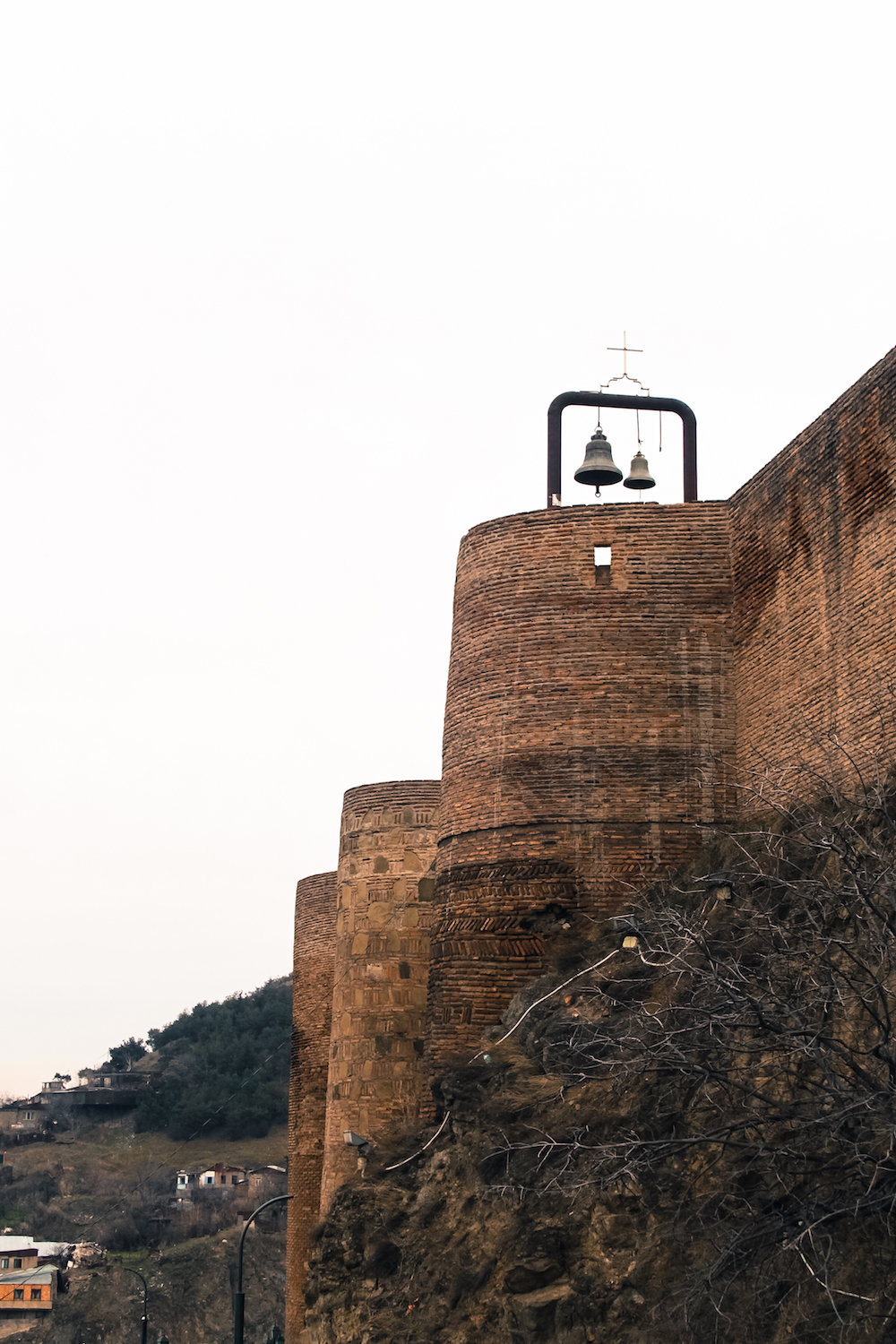
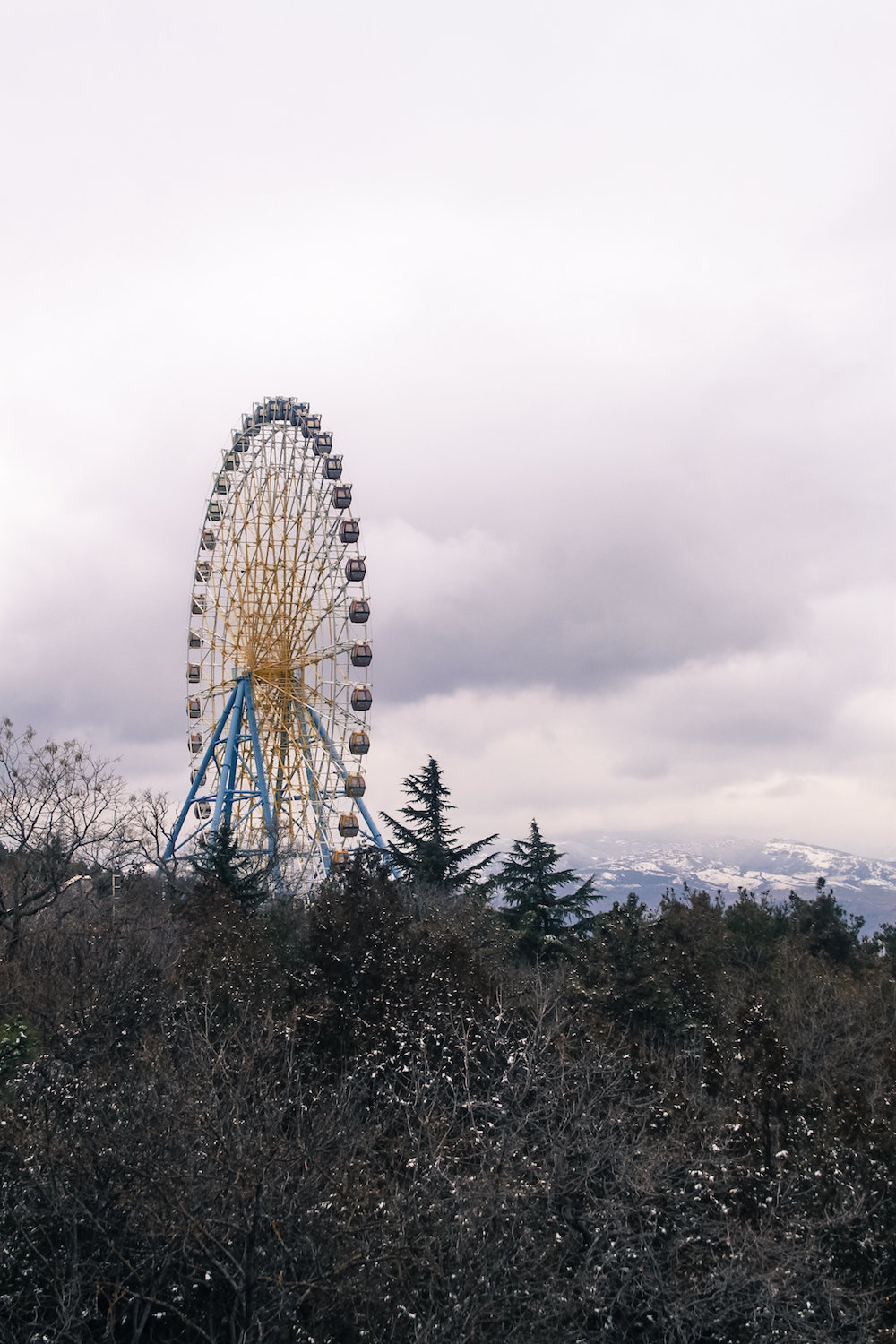
The wine in Georgia is fantastic – in flavor unlike European wine. It’s fermented in kvevri – clay amphorae shaped like hornets’ nests buried beneath the earth. Most families in Georgia grow their own grapes and make their own wine, still using this traditional technique. The wines themselves taste vibrant and light, and the taste of the grape is persistent and uncluttered.
The next morning, we head to Freedom Square early to meet Roland, a man we’d met the day before on our theater quest. He spoke excellent Spanish and had kind, smiling eyes. A shock of salt and pepper hair capped his head, and a big, bristling mustache graced his round face. For 30 euros per person, he’d drive us into the countryside for the day to see some of the country’s cultural sites and natural flora.
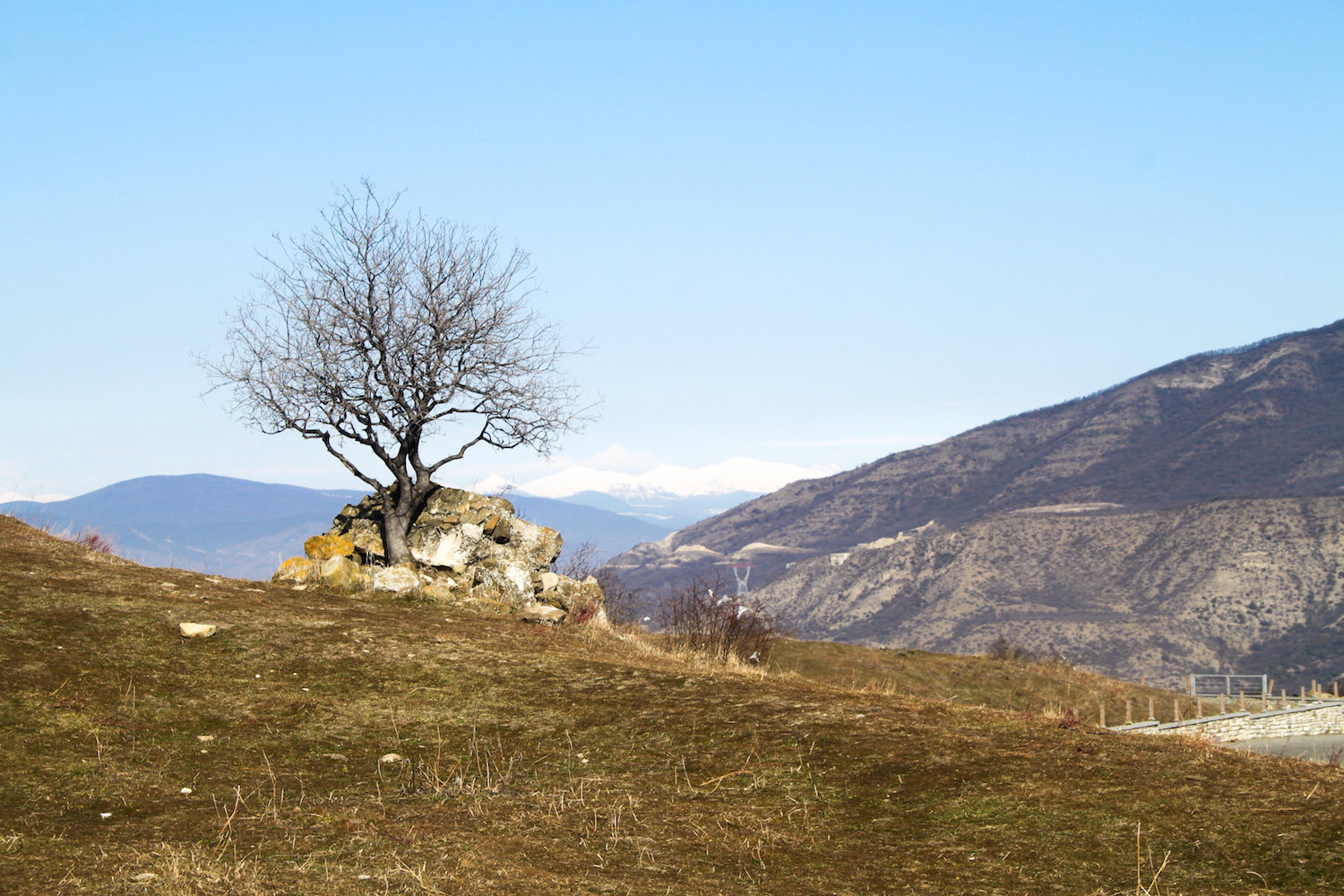
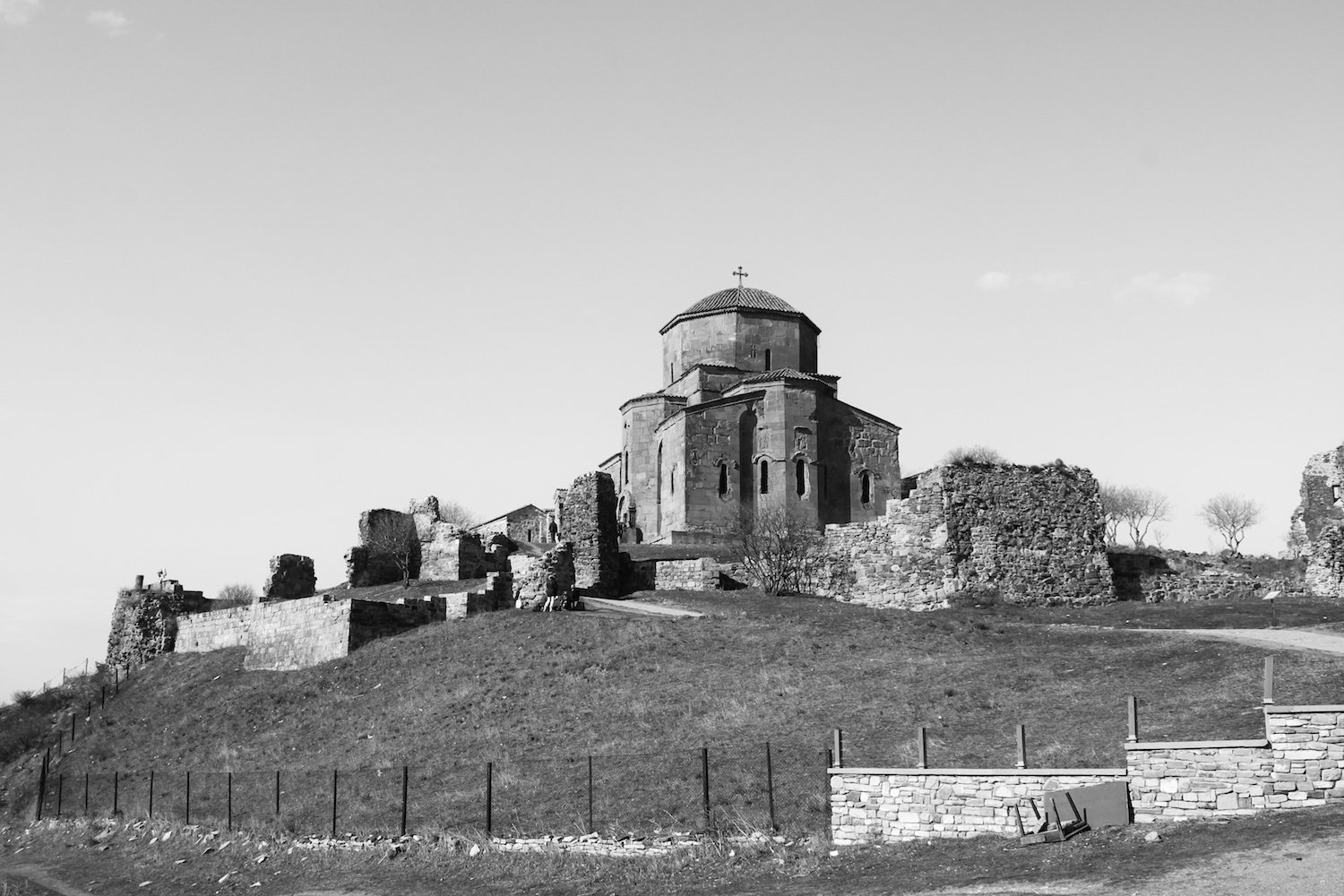
He’s pleased to see us, though we’re late, and ushers us into his minivan. We stop for breakfast on the way out of the city – flaky, cheese-filled pastry and hot Turkish coffee. As Tbilisi begins to disappear, the landscape softly curves, dusty-looking and faded in its winter skin. Before us, the massive, snow-capped mountains start to focus more clearly in view.
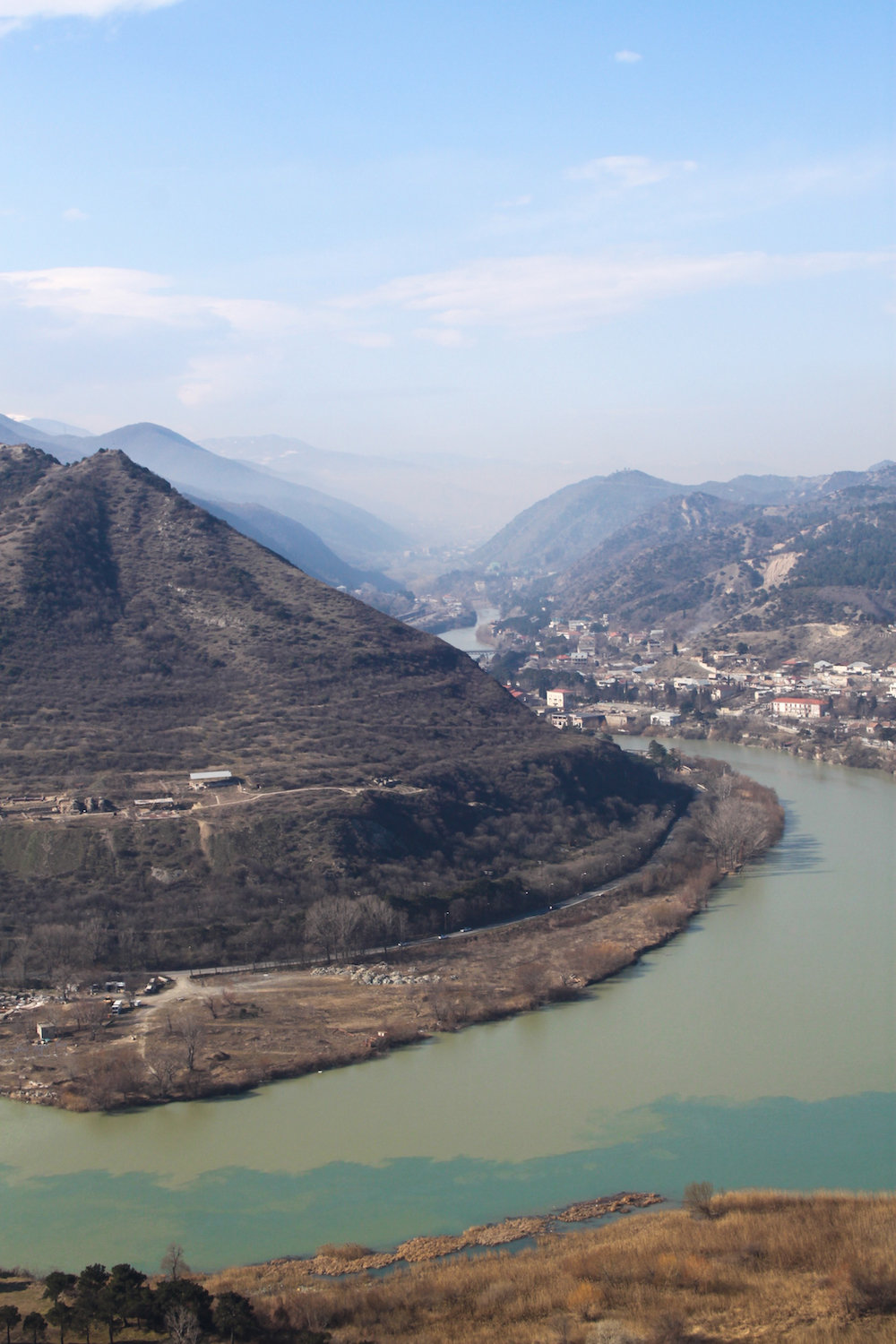
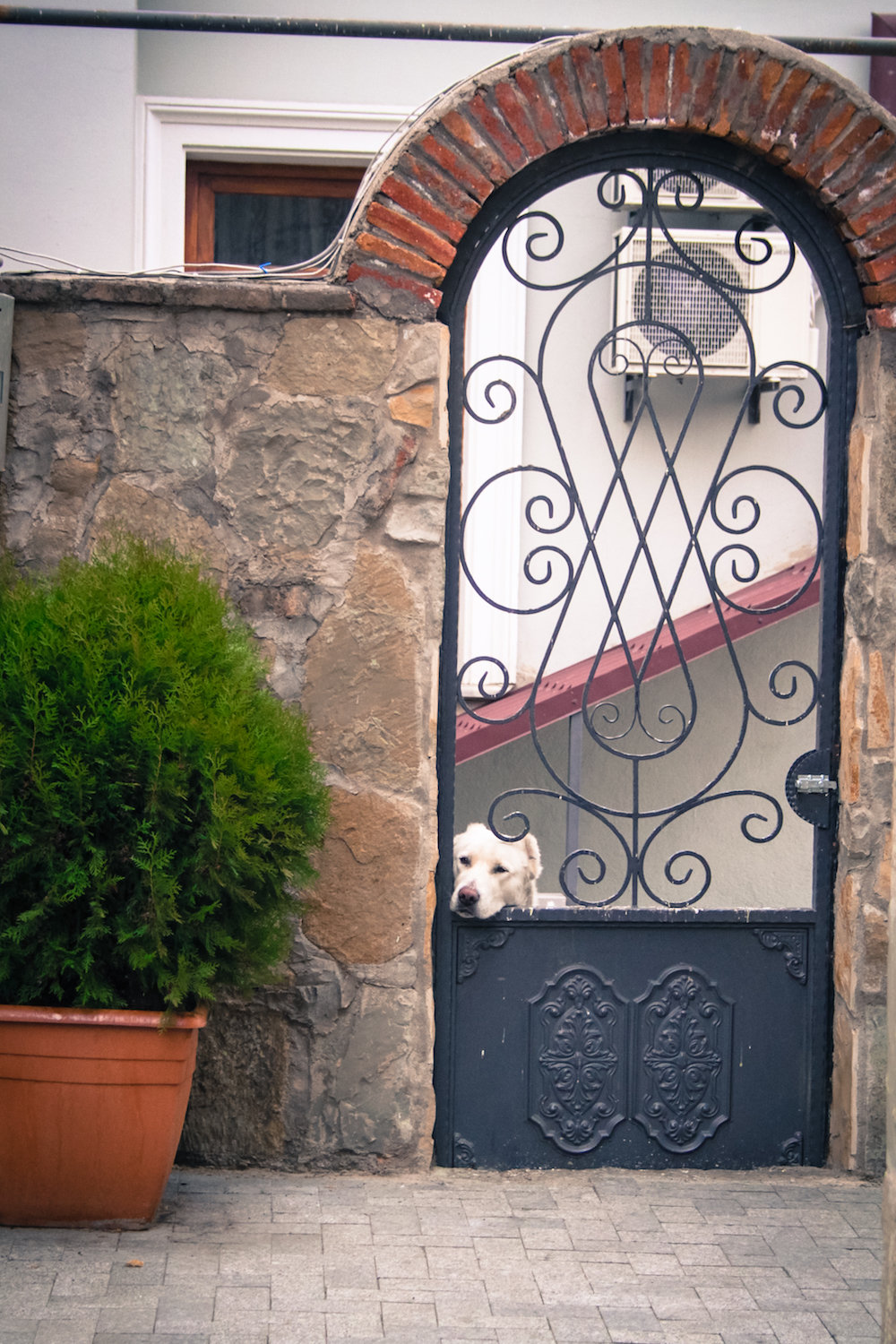
Our first stop is the Jvari Monastery, perched on a high hill overlooking the town of Mtskheta. A man sings at the foot of the monastery, and the sound is beautiful and eerie – as though the story he sings is a painful memory.
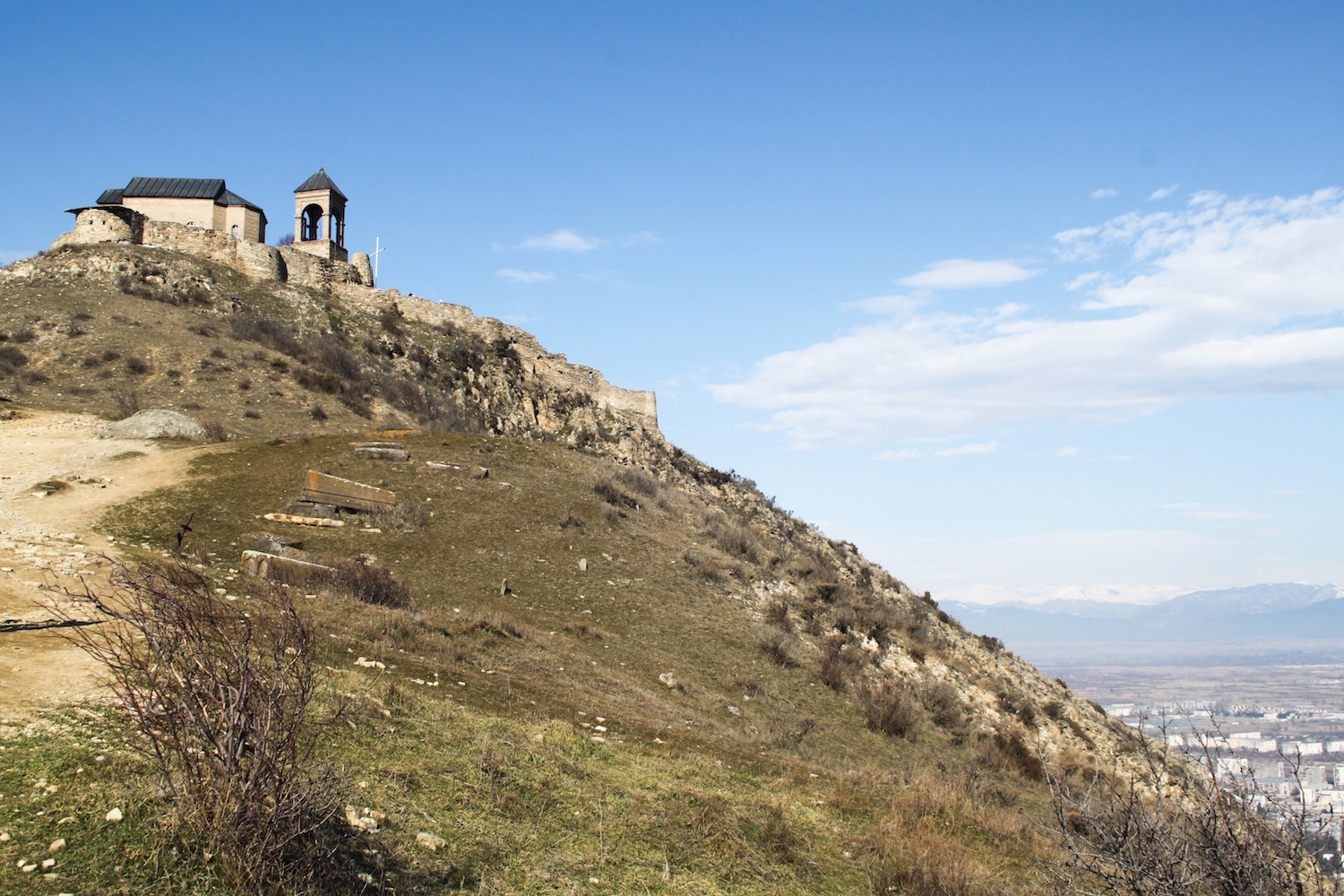
The road unfurls towards Gori. Roland tells us this is where he lives, and it does seem as though he knows everyone we pass. He takes us to see Stalin’s childhood home and the Gori Fortress, then takes a quick detour up to the monastery overlooking the city. In springtime, this part of the world is surely lush.
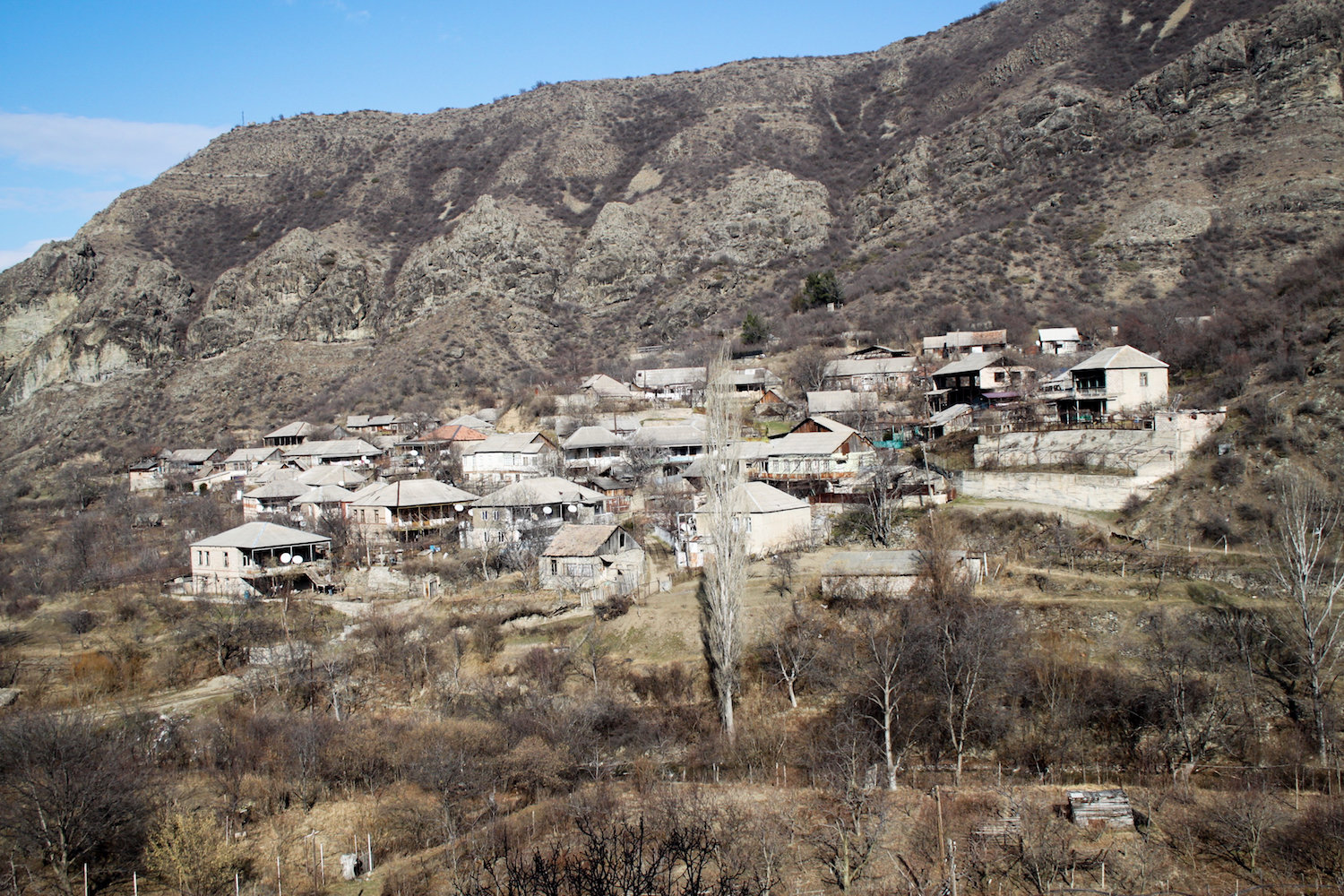
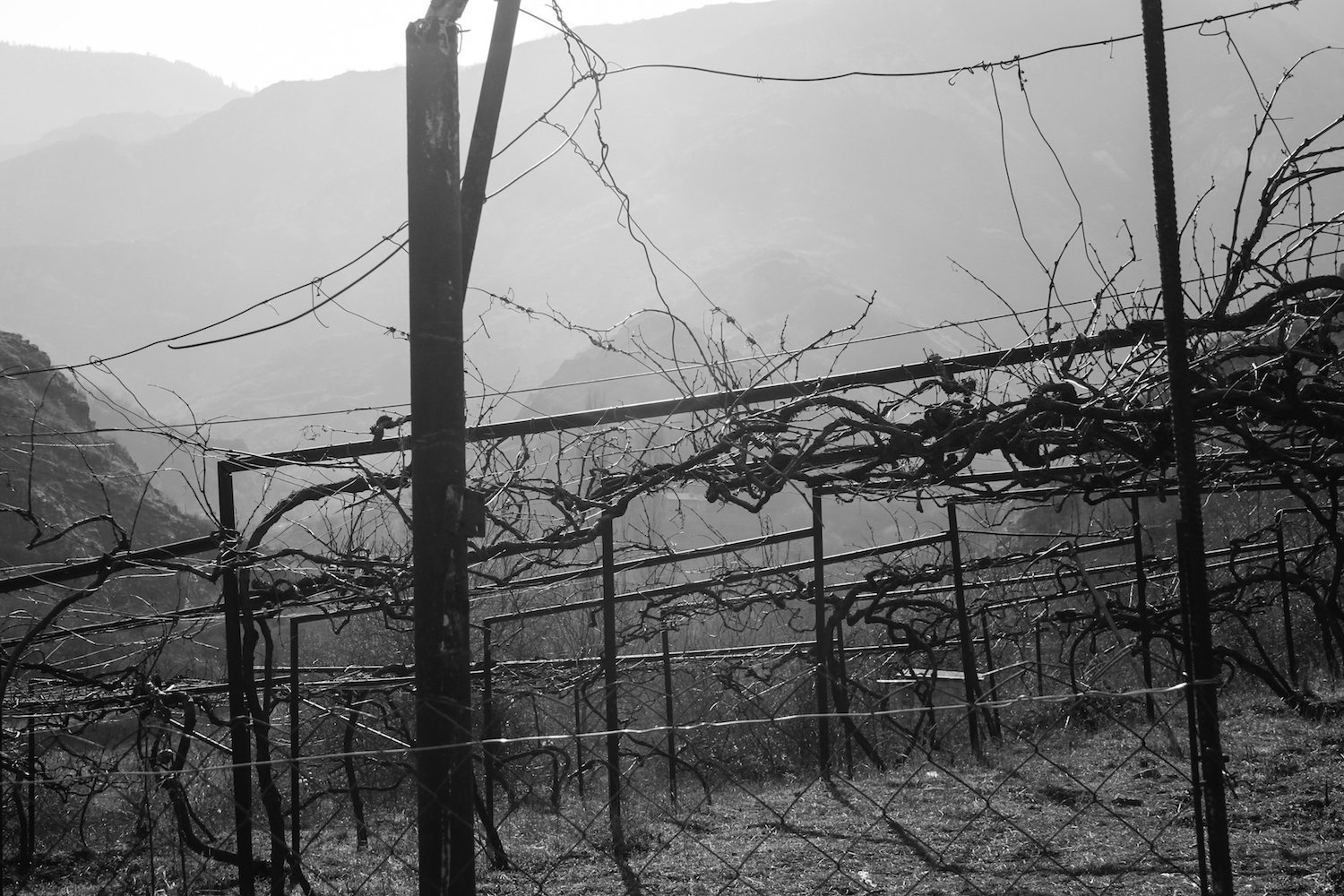
We drive down small roads through dusty clusters of houses overrun with grape vines. Stray dogs litter the streets, and clumps of cows casually graze by the side of the road.

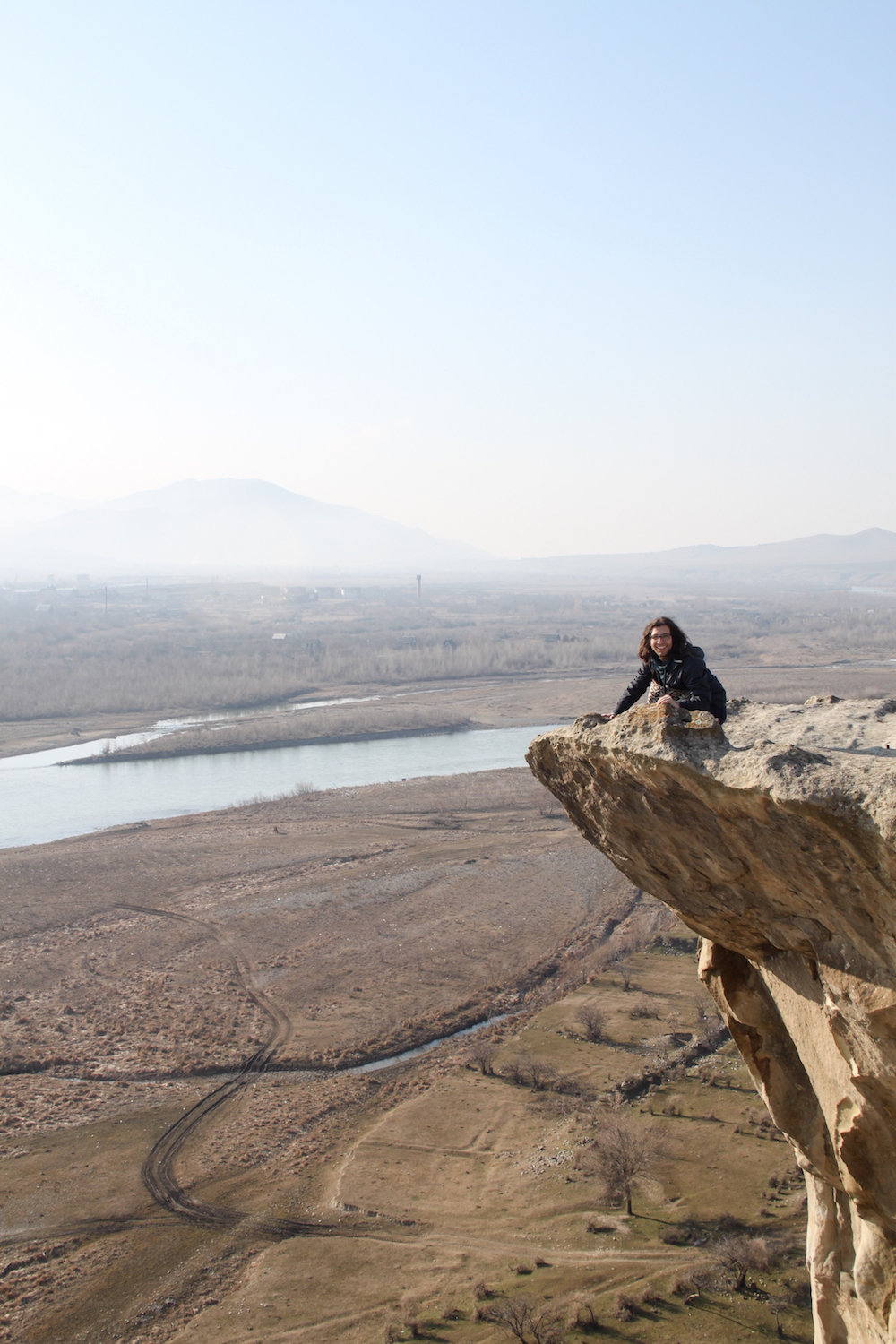
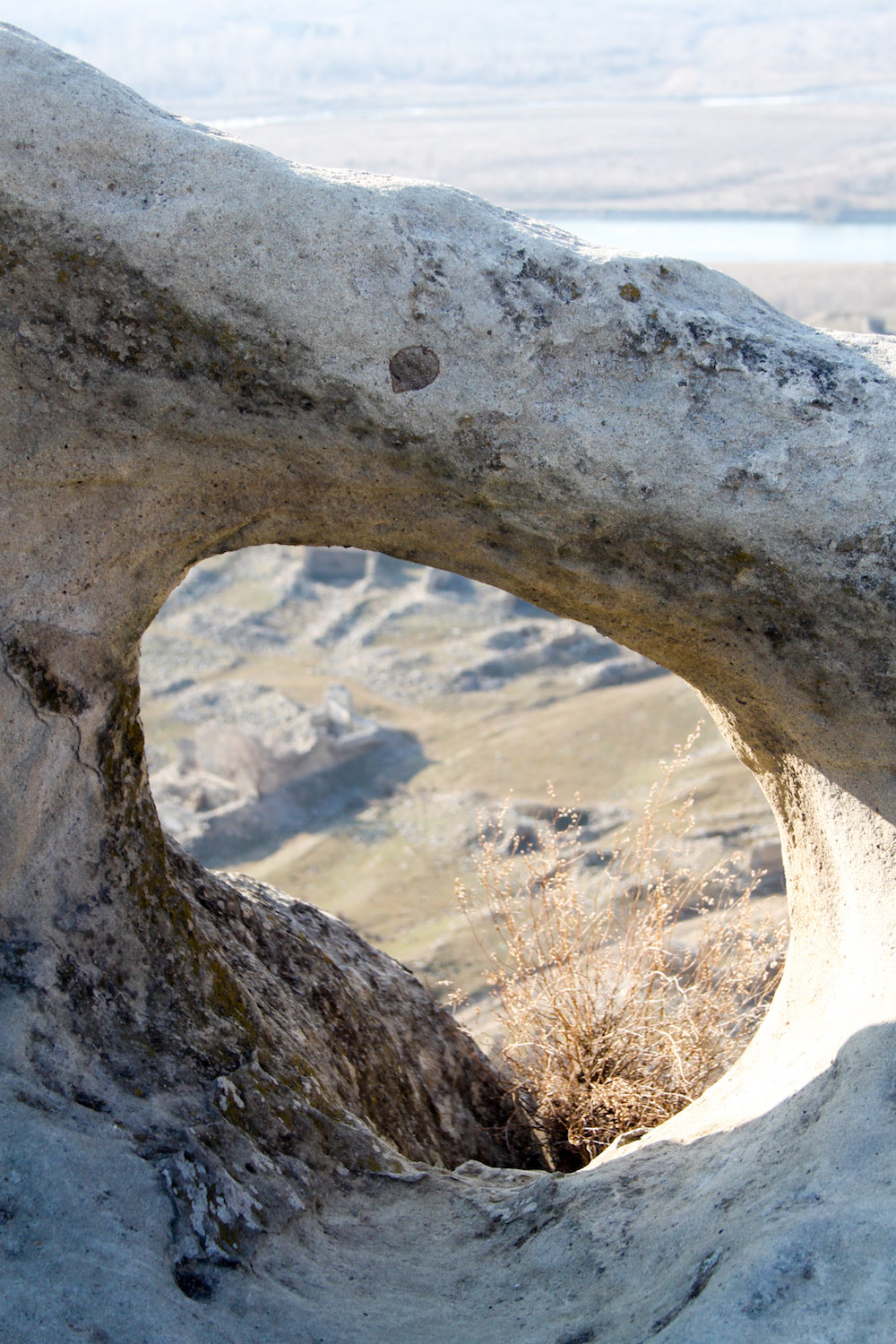
From the top of Uplistsikhe, we can see and hear for miles: a saw snatching at the branches of a dead vine, smoke from fires clearing and cleaning the fertile ground, the barking of mud-stained strays. The rocks are cool beneath our hands as we clamber up them and through the hollowed-out chambers. Even at this ancient site, there’s a massive wine cellar for kvevri.
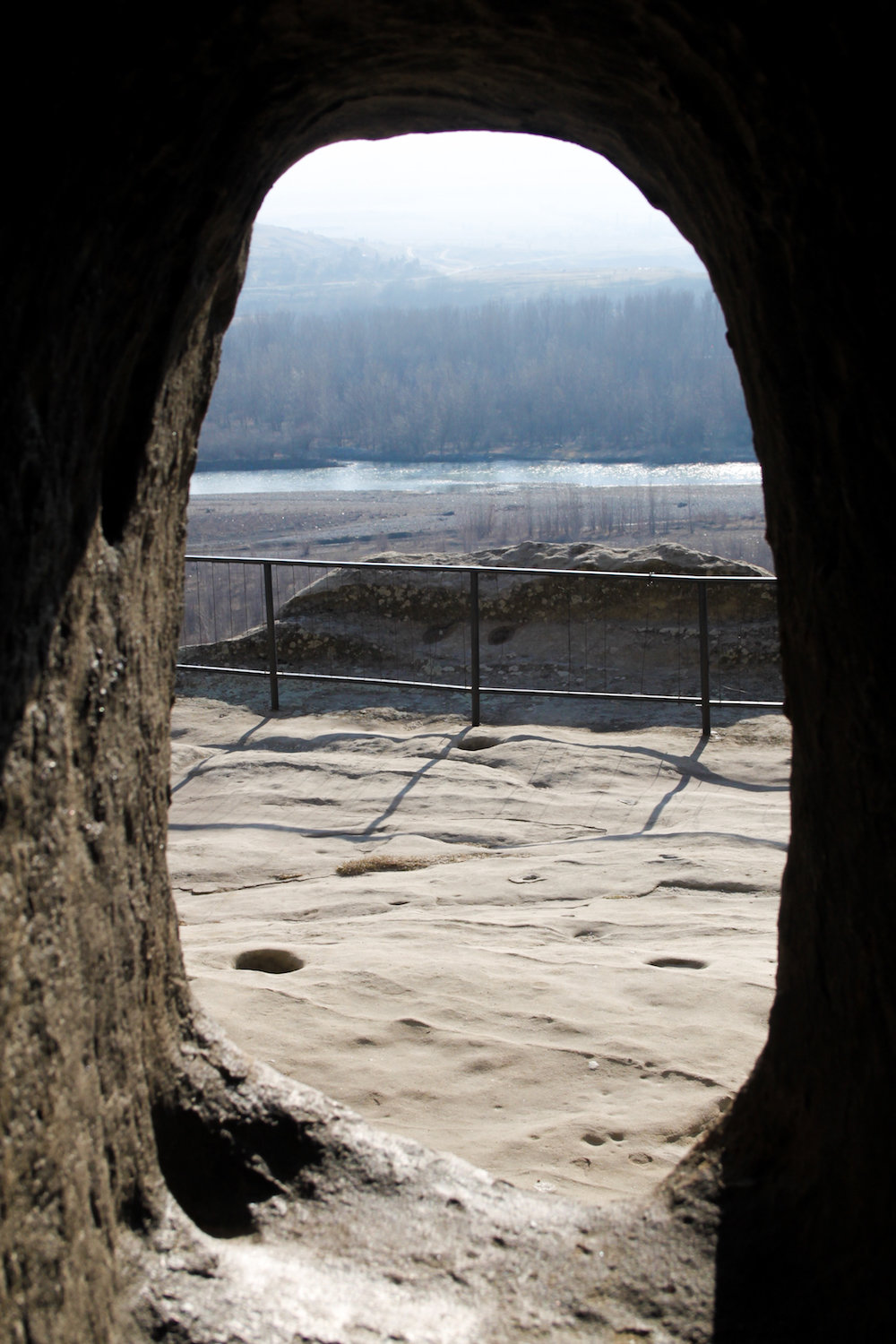
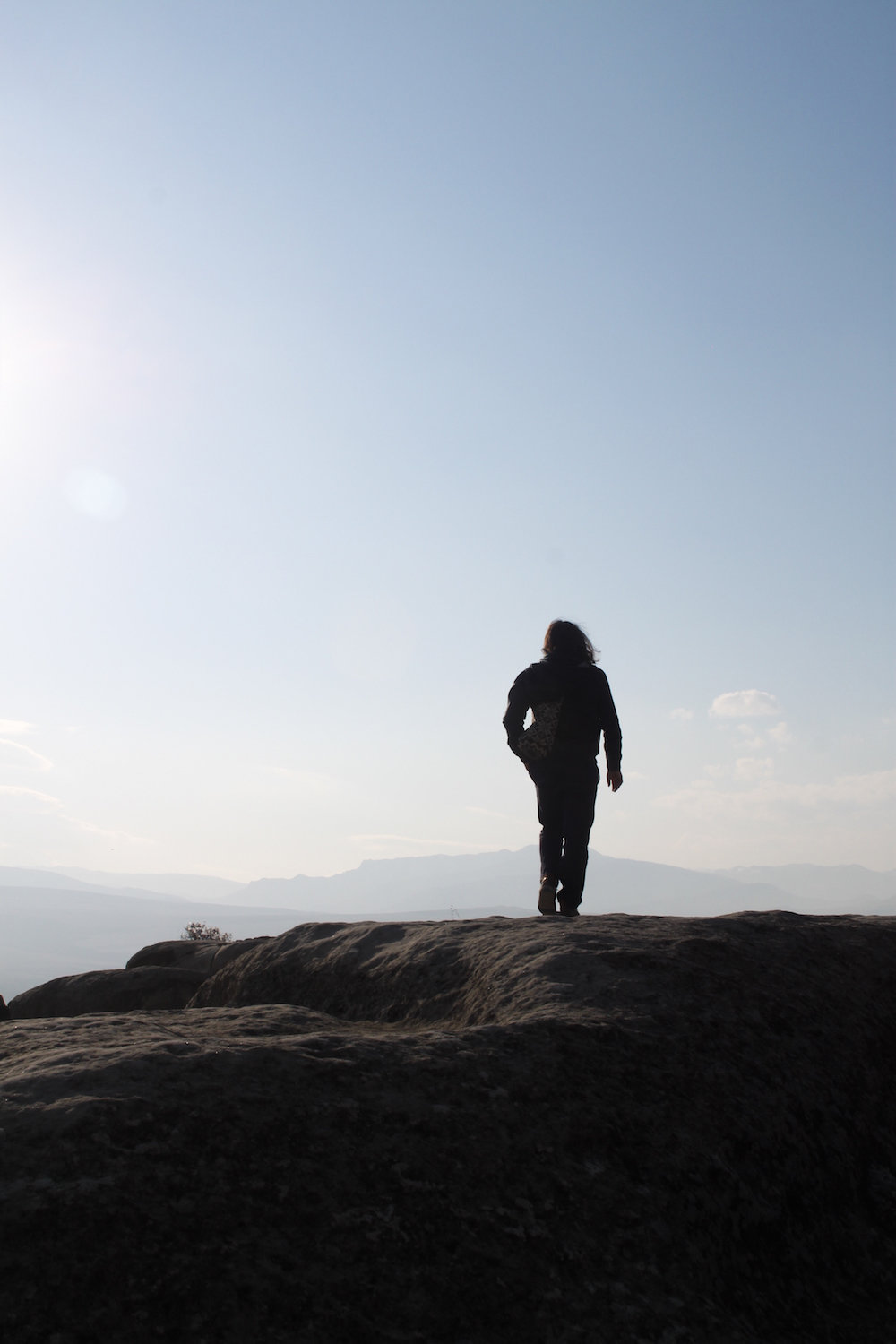
We slowly make our way back to the car as the sun begins to set. Down below, Roland is waiting for us. He asks if we’d like to try some of his homemade wine, then pours two paper coffee cups full to the brim with wine from a plastic soda bottle. The drink is refreshing, sweet, and cold after our climb.
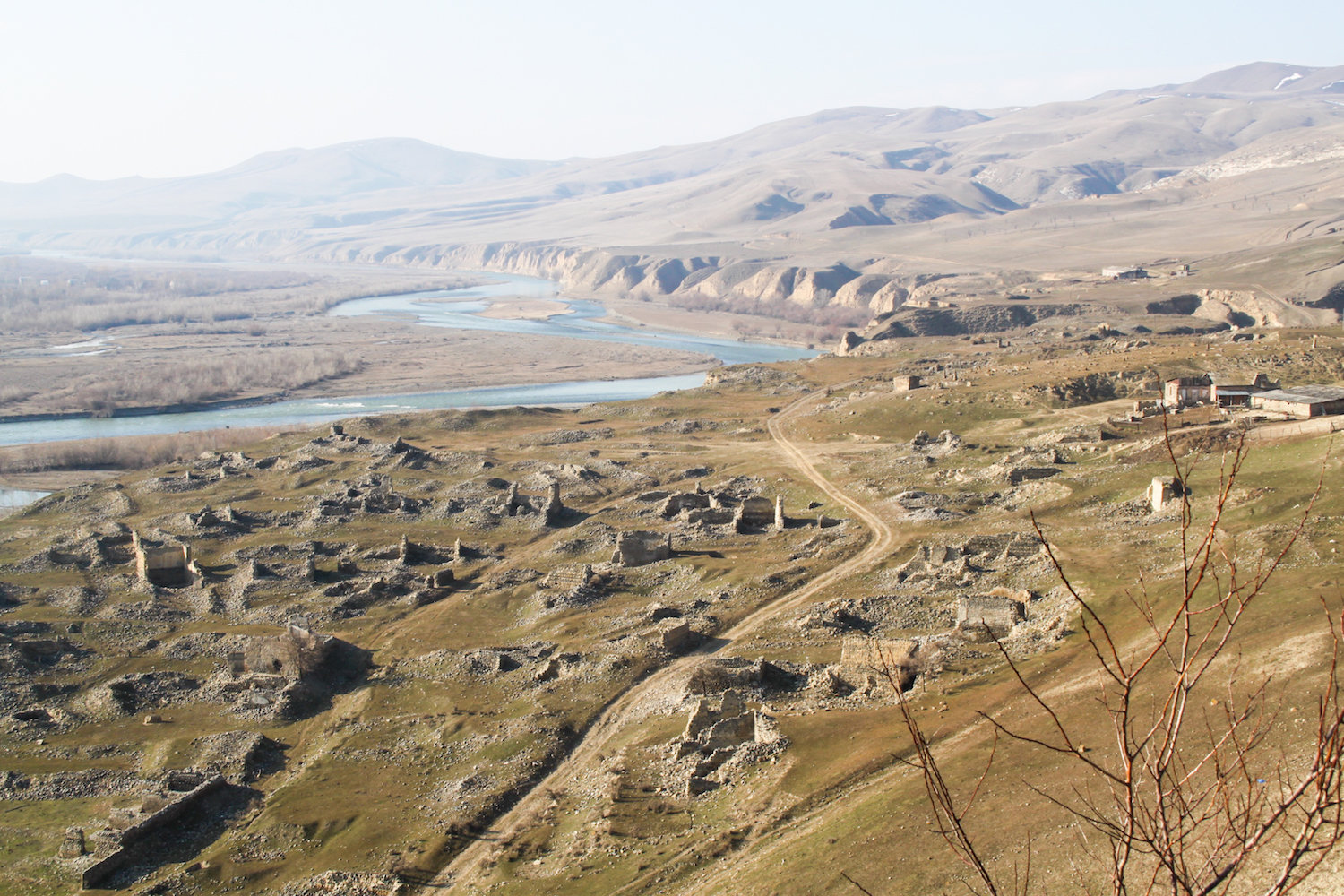
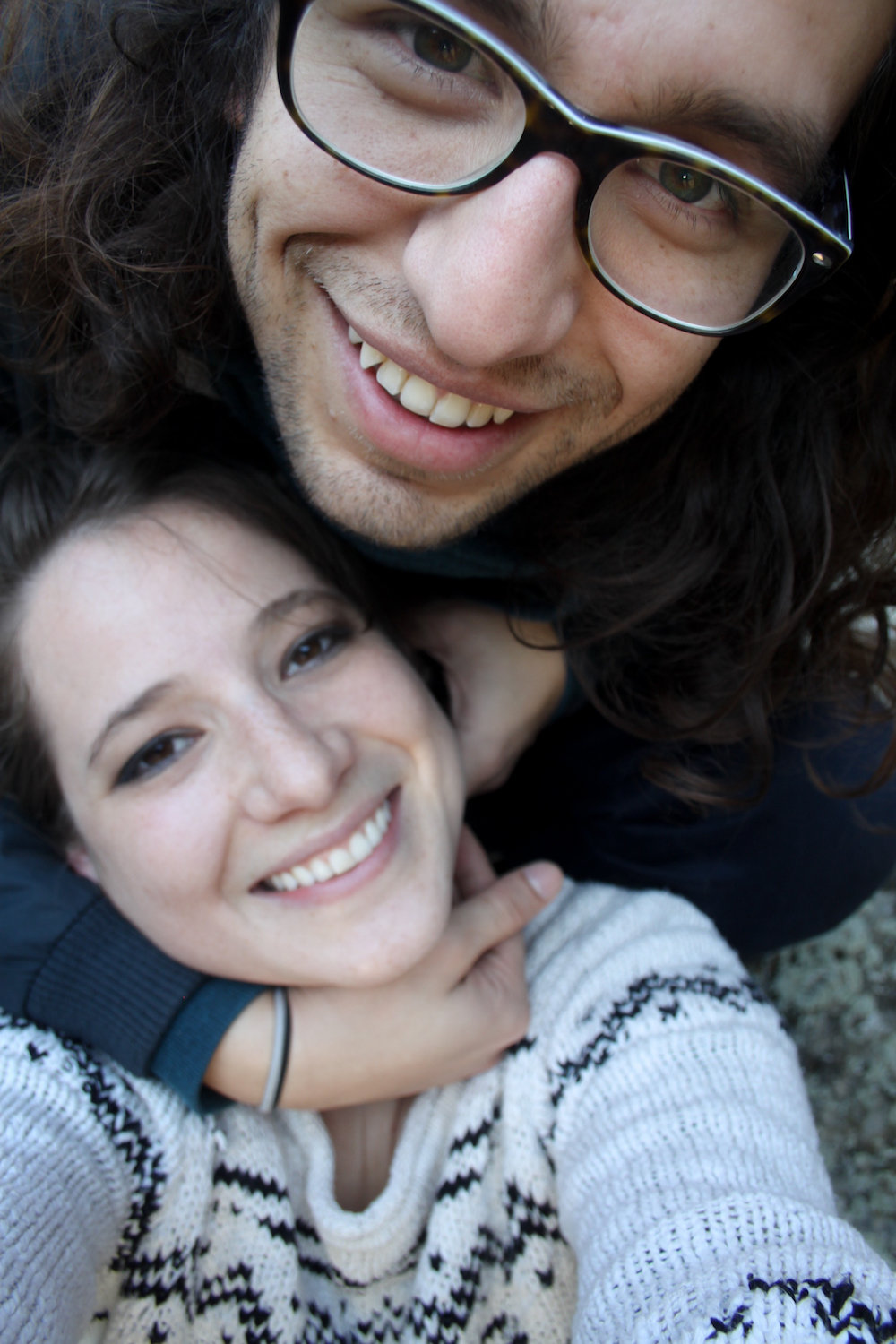
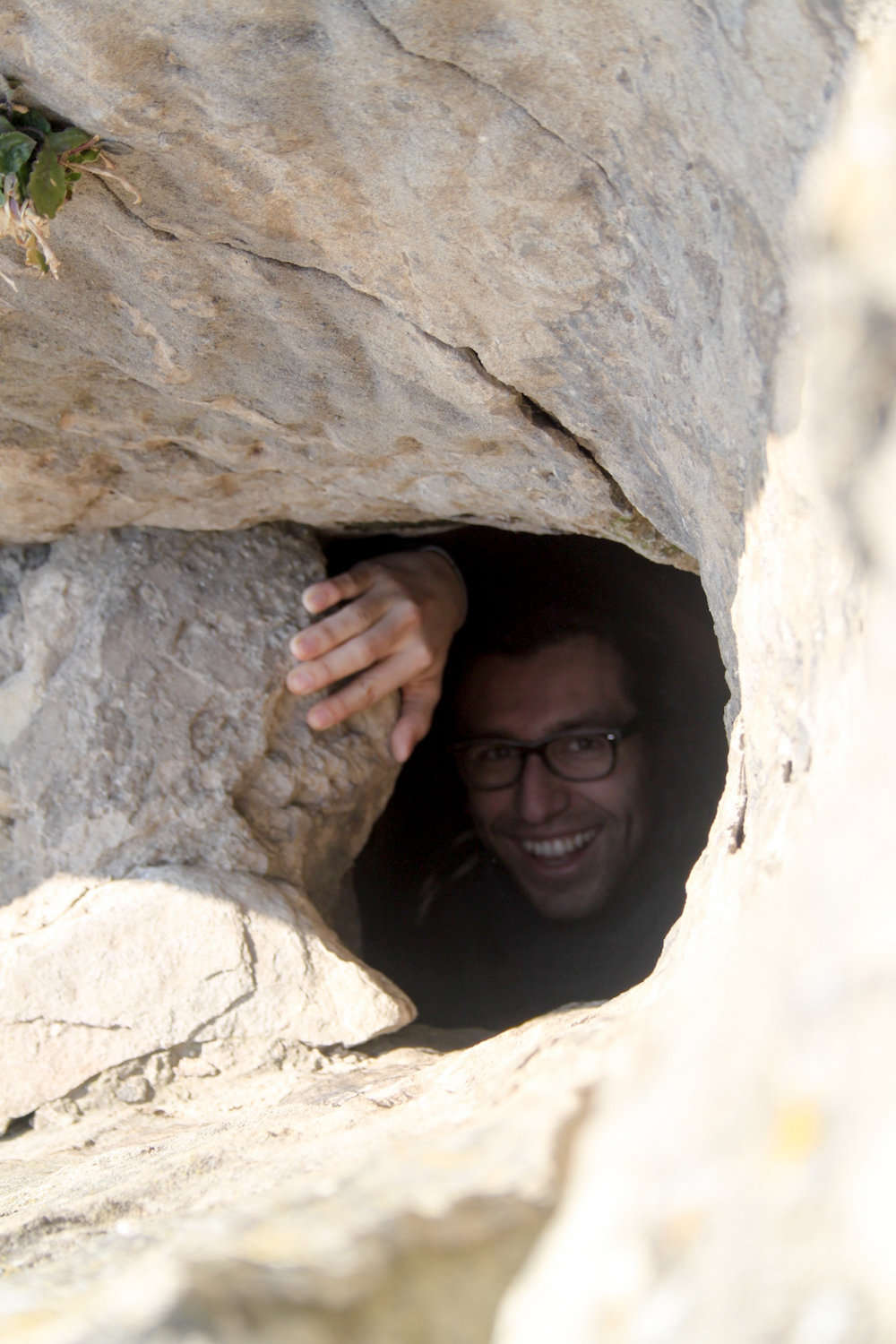
It’s already dusk when we reach Mtskheta, and the church looms in the half-light. Roland introduces us to a friend of his – a thin, stooped woman wearing a sparkling black hat and clutching at her handbag – who will give us a tour, in English, of the church. She leads us inside, where a service is taking place. The atmosphere is hushed as the priest incants over the crowd, but our guide is indifferent and tells us loudly about the church’s secret tunnels. People turn to stare. An altar boy hushes her. But she simply shrugs and thrusts coffee-flavored caramels from her bag into our hands and keeps talking. She says every sentence at least twice – with the exact same words in the exact same order – in a stage whisper, spittle flecking her pink lipstick. It almost becomes a litany of its own. “From the 5th Century BC! From the 5th Century BC! The Russians whitewashed the walls! The Russians whitewashed the walls! Here is buried a piece of the robe of Christ! The robe! The robe!”
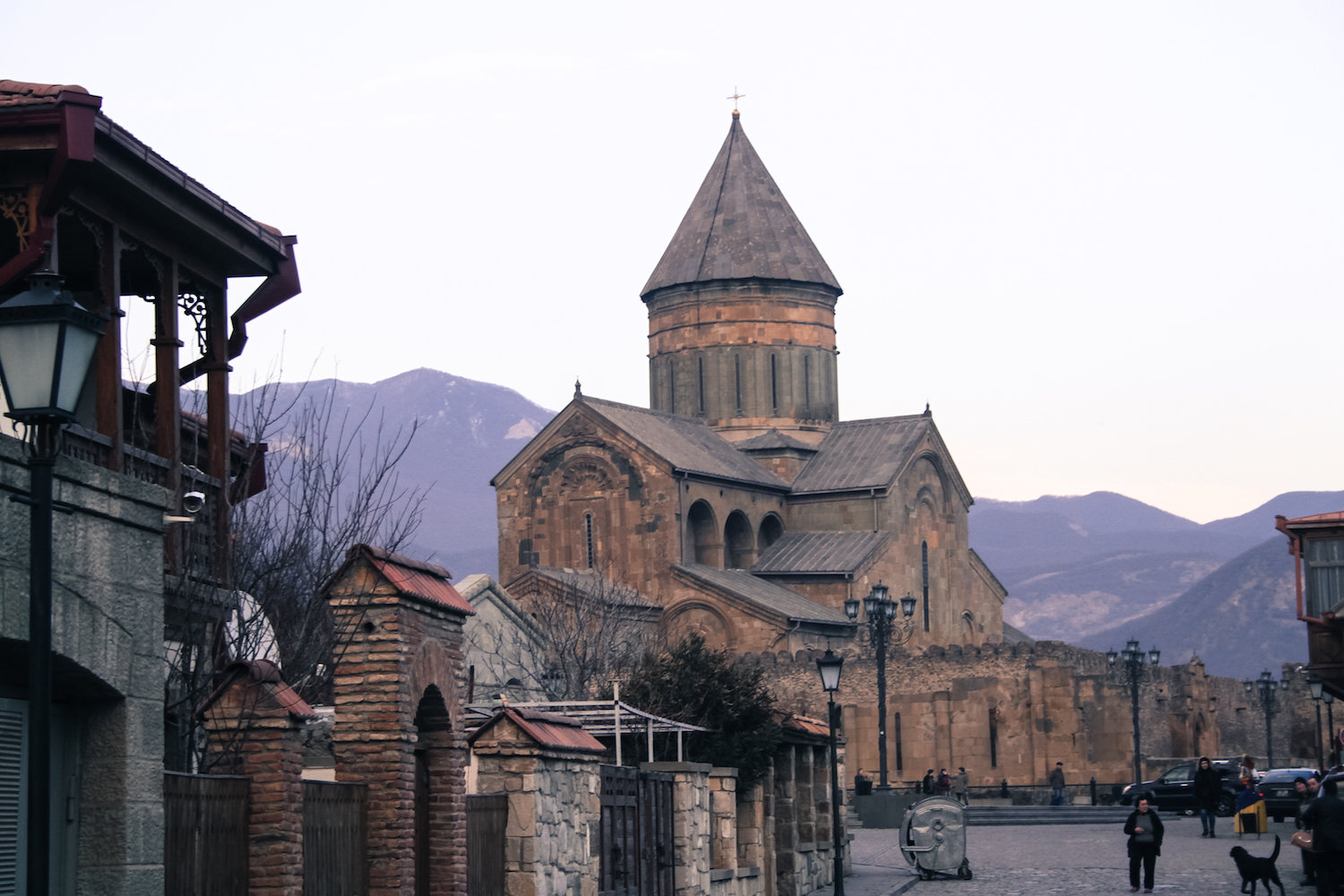
But we’re too hungry to really be amused. It’s dark now, and chilly, and all we’ve had to eat is that long-ago breakfast. Roland says he knows a place on the way into Tbilisi where we can get good, cheap food.
It’s a weekend, so the restaurant is packed. Waitresses whisk between tables carrying giant trays full of food. The specialty here is lobio – hearty spiced bean stew served in a clay pot with mchadi, dense cornbread crumbled into the stew. Roland orders for us – lobio, of course, as well as grilled kebabs, khachapuri, and a platter full of khinkali – soup dumplings stuffed with meat, onion, herbs, and broth. To eat the khinkali, you bite a corner off the dumpling, then slurp out the broth before nibbling every part but the knot. They’re best eaten with loads of black pepper and washed down with cold, golden beer.

Now we’re full and properly tired. The drive into Tbilisi is quiet – we both doze in and out of sleep. Coming back to the city feels like coming home to an old friend. Georgia already feels familiar – we have met so many kind strangers. Roland presses the rest of the bottle of wine into our hands. A gift, he says, and waves us on our way.
Amazing travelogue and food writing! I love this!
Thank you!
The food and wine sounds wonderful. The air quality looks terrible. The churches, monasteries, and fortresses are a wonderful link to some faraway past. Same for the bakery and wine-making. But it looks like the city itself could disappear in a small earthquake. Oh, and the blogger getting out near the edge of a cliff made my heart rate jump. Reminds me of the people who do the same at the Grand Canyon. Missteps happen.
Looking forward to the next installment.
If you think this installment is scary, just wait until part II…
Never, never, never get into cars with strangers…